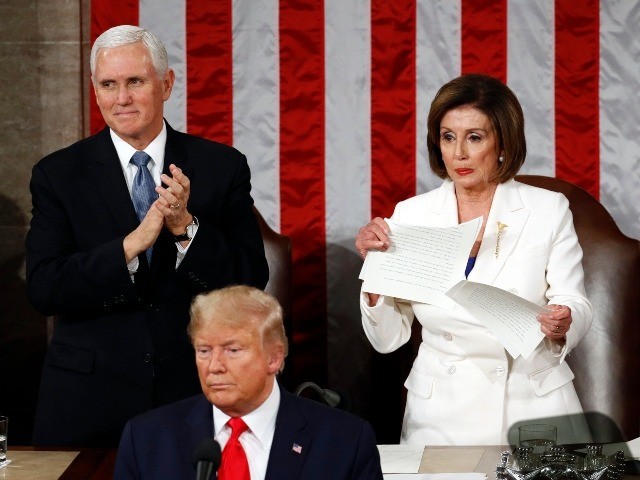Update, Sep. 18, 2020: The passing of Supreme Court Justice Ruth Bader Ginsburg creates a situation in which the Supreme Court has only eight justices. If the Court faces a difficult case about the election, and Chief Justice Roberts, as has been his practice recently, sides with the Court’s remaining three liberals, that could create a four-four tie — making the possibility of the House of Representatives deciding the presidential election more likely, though still a distant possibility.
It seems almost certain that neither party will accept a close result in the presidential election on November 3. And given the likely delays due to vote-by-mail, recounts, and legal challenges, it is possible neither President Donald Trump nor former Vice President Joe Biden will have an Electoral College majority by December 14, when the Electors cast their votes.
The election will then be decided by the House of Representatives, as indicated by the 12th Amendment to the U.S. Constitution. (It has happened before, in 1800 and 1824.)
The 12th Amendment states that “if no person have such majority [in the Electoral College], then from the persons having the highest numbers not exceeding three on the list of those voted for as President, the House of Representatives shall choose immediately, by ballot, the President.”
The word “immediately” means that the current Congress would choose. That, in turn, would seem to mean Speaker of the House Nancy Pelosi (D-CA) and the majority Democrats would prevail, and pick Biden.
Not so fast: The 12th Amendment goes further. “But in choosing the President,” it says, “the votes shall be taken by states, the representation from each state having one vote” [emphasis added].
While there are 435 representatives, there will only be 50 votes. And a current tally of representatives in each state shows that there are more Republican-majority delegations than Democrat-majority delegations. Republicans control 26 delegations; Democrats dominate 22; Pennsylvania is tied and Democrats have a 7-6 Michigan plurality.
That would leave Democrats only one option left to prevent Trump from being re-elected: They could deny the House a quorum — which, according to the 12th Amendment, requires two-thirds of the states to be represented by at least one member.
This would be difficult to sustain indefinitely: Even if Democrats returned in January with control of more state delegations, Republicans could likewise filibuster. Regardless, every member of the next Congress would have to show up to be sworn in January 3, and elect the speaker, making a quorum almost certain.
If, in some way, no one was chosen by the end of Trump’s term January 20, then according to the 20th Amendment, the vice president-elect would act as president. That would mean current Vice President Mike Pence or Sen. Kamala Harris (D-CA) would be running the country until the House standoff ended.
The only way for the country to avoid political chaos would be for cooler heads to prevail in the House — or for either one of the two presidential candidates to win by landslide margins in November.
Update: A Twitter response pointed out an interesting obstacle to Democrats denying the House a quorum:
Indeed, the 12th Amendment says, “A quorum for this purpose shall consist of a member or members from two-thirds of the states.” That means a single Republican representative, even from a Democrat-dominated delegation, could represent the state at the vote.
Joel B. Pollak is Senior Editor-at-Large at Breitbart News and the host of Breitbart News Sunday on Sirius XM Patriot on Sunday evenings from 7 p.m. to 10 p.m. ET (4 p.m. to 7 p.m. PT). His new book, RED NOVEMBER, tells the story of the 2020 Democratic presidential primary from a conservative perspective. He is a winner of the 2018 Robert Novak Journalism Alumni Fellowship. Follow him on Twitter at @joelpollak.
Updated to include Pennsylvania and Michigan plurality.

COMMENTS
Please let us know if you're having issues with commenting.